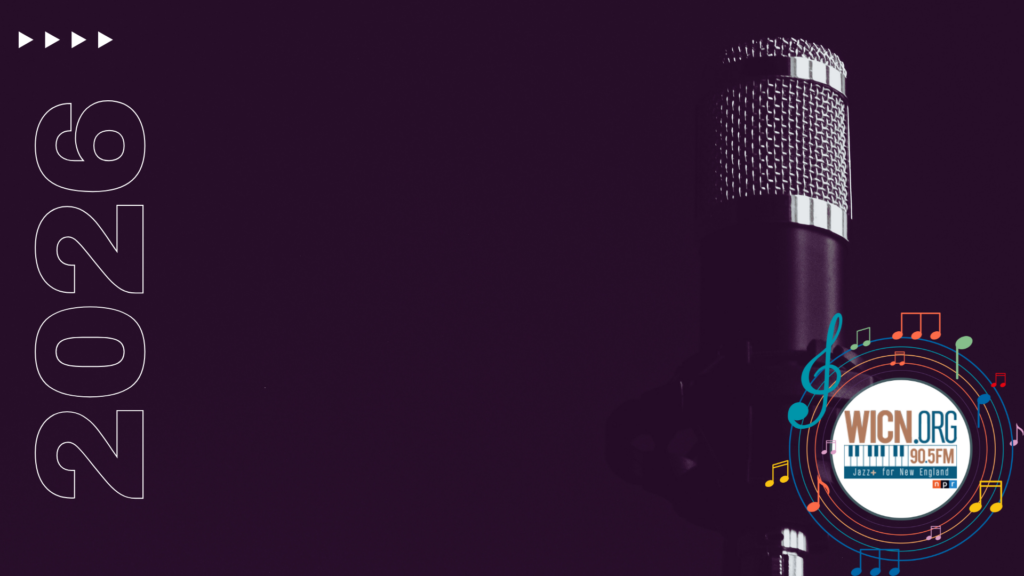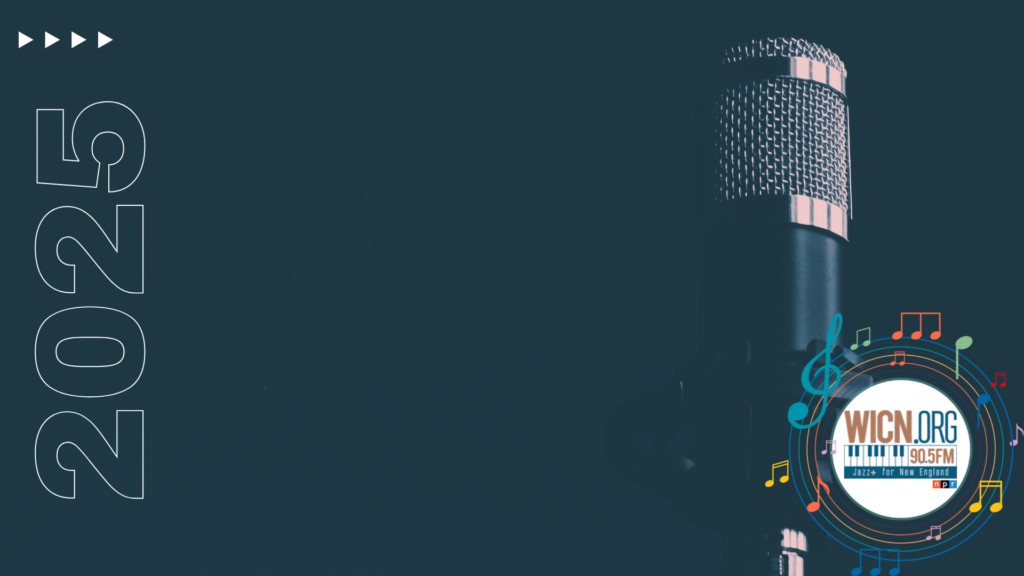WICN Artist of the Month, March 2023: Mary Halvorson
Written by Doug Hall on March 1, 2023
Experimental jazz guitarist, composer, and ensemble bandleader Mary Halvorson has evolved her individual style and pushed an incredibly varied direction in musical expression over the course of numerous projects since 2005. Finding significant critical attention in 2017, 2018 and 2019, and most recently 2022 by virtue of consecutive wins in DownBeat’s International Critics Poll as Best Guitarist, Halvorson continues to be a pioneering musical force. Covering genres ranging through acoustic instrumental, flamenco, rock, jazz, and intonations and effects of sound have demonstrated that she’s truly an artistic explorer.
Kept from concert performances during the Covid pandemic in late ‘20 and all of ‘21, she had forced downtime to begin composing what evolved into two projects, Amaryllis and Belladonna, on the Nonesuch label, released May 13, ‘22. A double release that found recognition with jazz critics for its originality of composition and arrangement and baffling categorization as she radically changes directions in sound, tone and individual instrument “voicings,” particularly on Amaryllis. Amaryllis was mostly conceived for a six-piece improv band; Belladonna for New York’s contemporary-classical Mivos string quartet.
Touching on her creative process during a WICN interview last year, she talked about the impact of Covid and not being able to perform and actually experience her music live: “So, I spent a long time writing the music and trying to envision how it would sound without having actually heard the band (perform the music). It was really more about the people (musicians) than the instrumentation. But I really enjoyed the idea of working with the vibraphone and trombone, which are instruments I write for less frequently than trumpet, bass, and drums. But I liked the idea intuitively of putting those two colors together.”
Jazz critic for The Guardian, John Fordham, gave these releases 5 stars. “…both sessions confirm how years of jaggedly lyrical solo and ensemble improvising and a quirkily subversive affection for mainstream music have now nurtured a composer of unpredictable but warmly expressive character.”
Given the eclectic and demanding nature of her compositions, listeners are immediately aware of her experimentation – which take no prisoners and offer no apology to meet you halfway.
In conjunction, her professional awards in the jazz field, as already noted, have been astounding, reaffirming to the artist and her chosen direction of musical statement. In addition to winning the Best Guitar category in DownBeat’s International Critics Poll between 2017 and 2019, and again in 2022, Halvorson has also previously been recognized by the same DownBeat Critics Poll as a Rising Star Jazz Artist and Rising Star Composer of the Year.
As a true sojourner in the music frontier, in “free jazz,” free improvisation, and avant-garde, Halvorson’s musical style keeps company with jazz pianist Matthew Shipp, jazz trumpeter Wadada Leo Smith and, in particular, Anthony Braxton. A more direct musical relationship and influence has existed with Anthony Braxton, multi-instrumental artist, free jazz experimenter, philosopher and professor of music, whose body of work is highly complex. Halvorson started playing and touring with Braxton’s band back in 2004 and then again in 2020 on the Anthony Braxton Project recording. She also was a student at Wesleyan University, where Braxton was Professor of Music from 1990 until his retirement at the end of 2013, “He would come to her concerts which very few people attended in those days and tell her what he liked about it. She would also later tour with Braxton.”
There is also a classical side to Halvorson’s background, which can be heard more directly on the Belladonna release with the Mivos String Quartet. In the same 2022 WICN interview previously cited, Halvorson spoke of her early listening exposure and habits while growing-up and how it has affected her approach to composing:
“I would say that I try to compose being completely open to any type of musical influence. I try not to have something that fits neatly into a box. The classical influence for me, even though I studied jazz primarily, is certainly there going back to when I played violin as a child. Some of the earliest music I played was classical music. So, it’s in there somewhere. I’ve played jazz, more experimental jazz, I’ve played in rock bands – I’ve played more folk-style music – so I’m kind of open to anything. But I think the project with the string quartet probably does have more of a ‘classical’ influence just because of the nature of the instrumentation. And it’s such a beautiful sound.
Oddly or not, jumping from playing classical violin as a child, until at age 11 when she switched to guitar after hearing Jimi Hendrix, drawn to his provocation and raw power on his instrument. Interviewed in 2018 by the former artistic director of the Berlin Jazz Festival Richard Williams, who restated it thusly: “her original influence on the guitar was Jimi Hendrix. She liked the recklessness of his playing.”
Already being noticed as a rising talent, while attending the ’18 Berlin Jazz Festival, she was invited to perform with a variety of bands, for all 4 days, including an onstage performance with jazz guitar legend Bill Frisell. Also connecting with the highly improvisational jazz bassist and collaborator, Michael Formanek, she completed the trio along with drummer Thomas Fujiwara at an informal concert at the foyer of the festival hall.
Halvorson’s evolving style had already been taking form with Formanek and Fujiwara back in 2013 when they recorded several albums as the band Thumbscrew. Moving forward, NPR called Halvorson’s 2015 solo album Meltframe “category exploding,” and its 2015 Jazz Critics Poll named the record 7th best of the year. Collaborations have continued, including Anthony Braxton, John Zorn, Bill Frisell, Marc Ribot, Elliot Sharp, and Tom Rainey. Her 2018 release Code Girl would receive more exposure and critical attention for her “fear no genre” approach to experimentation. As reviewed by AllMusic critic Thom Jurek, “Code Girl is one of the more provocative recordings of 2018. It recontextualizes musical boundaries into concentrated yet fleeting moments that require attention and care, while creating an immersive listening experience as accessible as it is challenging.”
To top off her ascending accomplishments, she was awarded the highly coveted and prestigious MacArthur Fellowship “Genius Grant” award in 2019. Recipients are chosen based on “extraordinary originality and dedication in their creative pursuits and a marked capacity for self-direction,” receiving $620K to be used over a five-year span. As reported in the New York Times, Halvorson’s response was certainly one of surprise, “When I started playing this kind of music, I never thought there would be that big of an audience for it,” she said. “If anything, I hope I can shine a light on this whole scene.”
Halvorson explains her choice of instrument based upon the guitar’s range of sound, tackling all possible musical terrain. “One thing I love about the guitar is that it’s a shape-shifting instrument and I think of all those genres I mentioned, and the guitar fits in. You can play classical guitar; you can play rock and roll. Guitar is of course used quite a bit in jazz and folk music. So, you have this instrument that can find its way into many different spaces. I also like the duality of the acoustic and electric guitar. I play a big hollow-bodied guitar and I like to hear the resonance of the wood and the natural acoustic sound of the instrument. But, at the same time, I use a lot of effects and I like to just distort and mutate the sound in a less organic way. The guitar can be a glue between these different spaces and different types of music. It’s a good instrument to avoid being boxed in.”
This type of cross-pollinating of styles, complex arrangements and compositional daring are bellwethers of her approach to music – seeking a frontier to explore, not define. There is little doubt that Halvorson will continue to surprise her listeners and fellow musicians alike with forthcoming projects and performances. In her own view of looking forward to the horizon of musical possibilities, she remains very positive. “There are always people making great music, and if you scratch the surface and really just start to explore – you’re going to see across so many styles – there’s just so much creativity happening,” she said.


